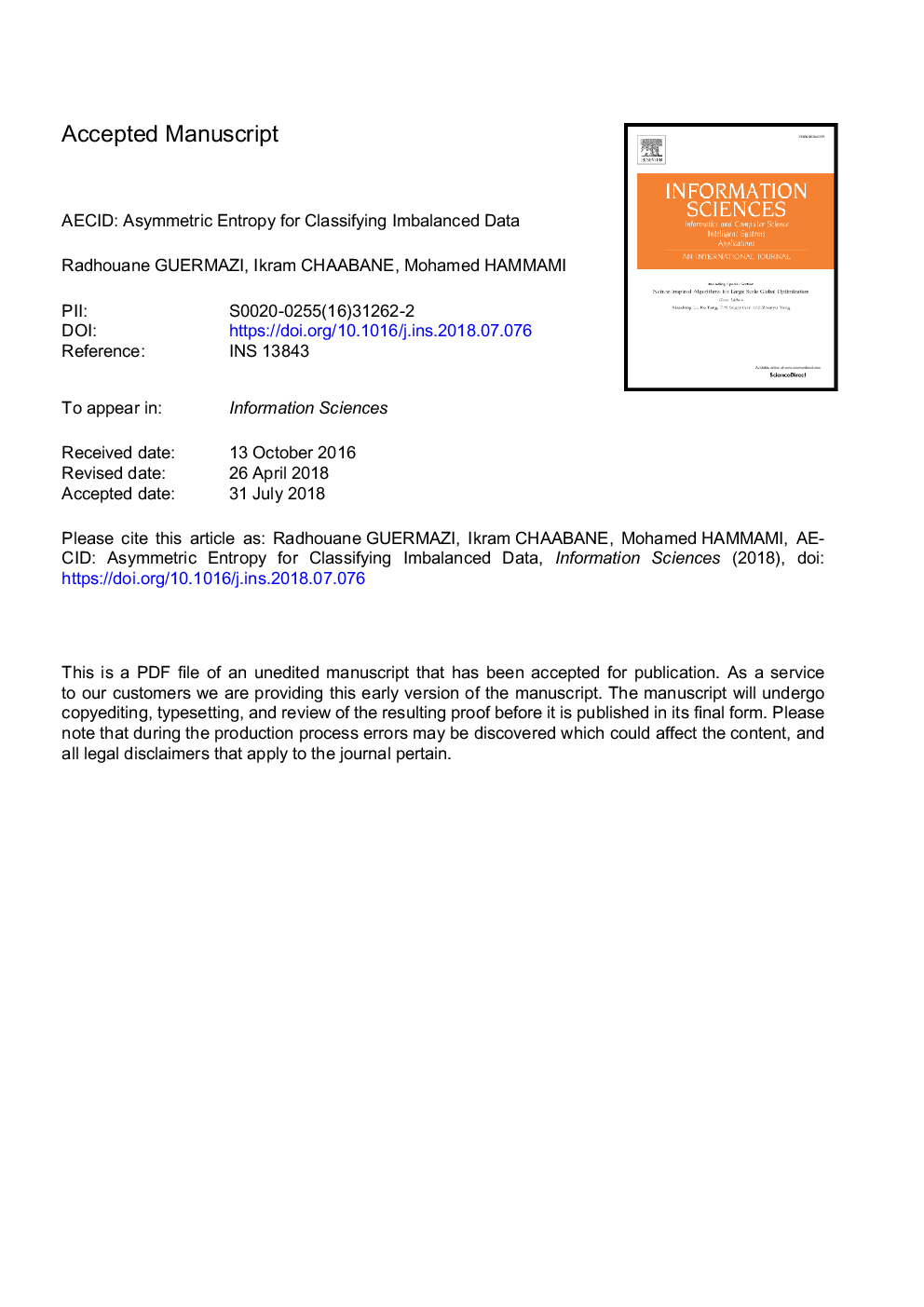| Article ID | Journal | Published Year | Pages | File Type |
|---|---|---|---|---|
| 6856147 | Information Sciences | 2018 | 42 Pages |
Abstract
In class imbalance problems, it is often more important and expensive to recognize examples from the minority class than from the majority. Standard entropies are known to exhibit poor performance towards the rare class since they take their maximal value for the uniform distribution. To deal with this issue, the present paper introduced a novel adaption of the decision-tree algorithm to imbalanced data situations. We focused, more specifically, on how to let the split criterion discriminate the minority-class examples on a binary-classification problem. Our algorithm uses a new asymmetric entropy measure, termed AECID, which adjusts the most uncertain class distribution to the prior class distribution and includes it in the evaluation of a node impurity. Unlike most competitive split, which include only the prior imbalanced class distribution in their formula, the proposed entropy is customizable with an adjustable concavity to take into account the specificities of each data-set and to better comply with the users' requirements. Extensive experiments were conducted on thirty-six real life imbalanced data-sets to apprise the effectiveness of the proposed approach. Furthermore, the comparative results prove that the new proposal outperforms various algorithmic, data level and ensemble approaches that have been already proposed for imbalanced learning.
Keywords
Related Topics
Physical Sciences and Engineering
Computer Science
Artificial Intelligence
Authors
Radhouane Guermazi, Ikram Chaabane, Mohamed Hammami,
